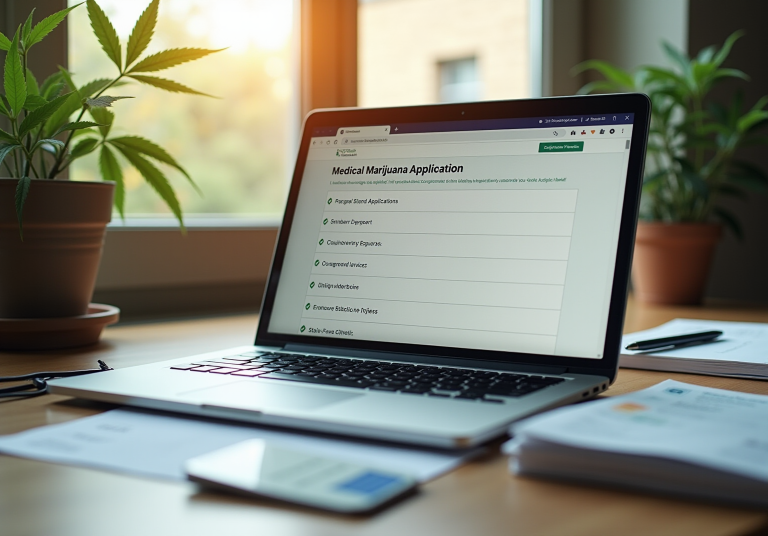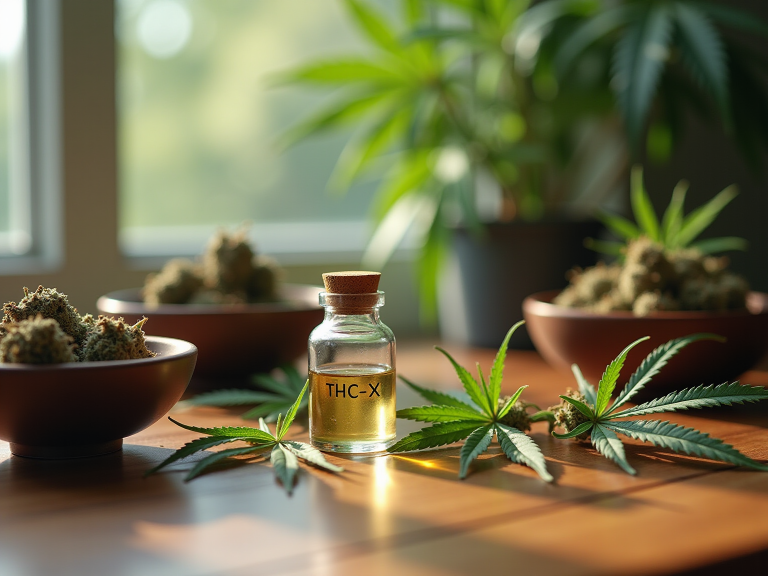Does Medical Cannabis Affect Antibiotics?
by Haley Mills · November 20, 2023
Curious about the impact of medical cannabis on antibiotics? Unveil the connection and potential health implications here. Click now for eye-opening insights and enhance your understanding!

Medical cannabis has gained significant attention in recent years for its potential therapeutic benefits. However, as more individuals turn to medical cannabis to manage various health conditions, it is important to consider its potential interactions with other medications. Antibiotics, commonly prescribed to treat bacterial infections, are one such class of medications that may interact with medical cannabis.
This article aims to explore the interaction between medical cannabis and antibiotics, shedding light on potential effects, safety concerns, and considerations for patients who may be using both simultaneously.
Understanding the potential effects of medical cannabis on antibiotic efficacy is crucial in ensuring optimal patient outcomes. While there is limited research specifically focused on this interaction, some studies suggest that certain compounds found in cannabis, such as cannabidiol (CBD), may possess antimicrobial properties. This raises the possibility that medical cannabis could potentially enhance the effectiveness of antibiotics in treating bacterial infections.
On the other hand, there is also concern that cannabinoids present in medical cannabis may interfere with the metabolism of antibiotics, potentially reducing their efficacy. Understanding these potential effects is essential for healthcare providers and patients alike to make informed decisions regarding the simultaneous use of medical cannabis and antibiotics.
Key Takeaways
- CBD, a compound found in cannabis, has antimicrobial properties that can help fight drug-resistant bacteria.
- Medical cannabis has the potential to enhance the immune response to antibiotics by modulating the immune system.
- Further research is required to fully understand the effects of using medical cannabis in conjunction with antibiotics.
- It is important to ensure safe and responsible use of medical cannabis when taking antibiotics.
Understanding the Interaction between Medical Cannabis and Antibiotics
Medical cannabis, with its powerful compounds, may potentially interact with antibiotics, altering their effectiveness in fighting off bacterial infections.
Drug interactions between medical cannabis and antibiotics can occur due to the way both substances are metabolized in the body. Both medical cannabis and antibiotics are broken down by enzymes in the liver, which can lead to competition for these enzymes. This competition can result in altered metabolism of either the medical cannabis or the antibiotics, leading to changes in their effectiveness.
Several studies have investigated the potential interactions between medical cannabis and antibiotics. One study published in the Journal of Antimicrobial Chemotherapy found that certain compounds in medical cannabis, such as cannabidiol (CBD), can inhibit the activity of specific enzymes involved in the metabolism of antibiotics. This inhibition can lead to increased levels of antibiotics in the body, potentially resulting in enhanced therapeutic effects or increased side effects.
However, the interactions between medical cannabis and antibiotics can vary depending on the specific drugs being used. Some antibiotics may be more susceptible to interactions with medical cannabis than others. Additionally, the dosage and timing of administration of both medical cannabis and antibiotics can also influence the likelihood and severity of interactions.
Potential Effects of Medical Cannabis on Antibiotic Efficacy
Imagine how surprised you’d be to learn that the use of cannabis might impact the effectiveness of antibiotics. While it may seem unlikely, there’s evidence to suggest potential drug interactions between medical cannabis and antibiotics, which may affect antibiotic treatment efficacy.
One possible way medical cannabis could affect antibiotics is through its interaction with certain enzymes in the body. Cannabis contains compounds called cannabinoids, which can interact with enzymes responsible for metabolizing drugs. This means that when someone’s using medical cannabis and taking antibiotics at the same time, the cannabinoids in the cannabis could potentially interfere with the metabolism of the antibiotics.
This interference could lead to changes in the levels of antibiotics in the body, potentially affecting their effectiveness in treating infections.
Additionally, there’s some evidence to suggest that certain cannabinoids found in medical cannabis may have antibacterial properties. While this might initially seem like a positive effect, it could actually be problematic when combined with antibiotic treatment. Antibiotics work by targeting specific bacteria and killing or inhibiting their growth. If cannabinoids in medical cannabis also have antibacterial effects, it’s possible that they could interfere with the action of antibiotics, reducing their ability to kill the bacteria causing the infection effectively.
Investigating the Safety of Combining Medical Cannabis and Antibiotics
Combining medical cannabis with antibiotics raises questions about their potential interaction and safety. Drug interactions occur when two or more substances, such as medications or natural products, interact with each other and affect the way they work in the body.
In the case of medical cannabis and antibiotics, there is limited research available to definitively determine the extent of their interaction. One concern is that medical cannabis may inhibit the effectiveness of antibiotics. Some studies have suggested that certain compounds found in cannabis, such as cannabidiol (CBD), may have antimicrobial properties and could potentially reduce the efficacy of antibiotics. However, more research is needed to fully understand the implications of this interaction.
Another aspect to consider is patient education. It’s crucial for healthcare professionals to inform patients about potential drug interactions between medical cannabis and antibiotics. Patients should be aware of the risks and benefits associated with combining these substances and should consult their healthcare provider before making any changes to their medication regimen.
Additionally, healthcare professionals should stay up-to-date with the latest research and guidelines to provide accurate information and ensure patient safety.
Considerations for Patients Using Medical Cannabis and Antibiotics Simultaneously
When using medical cannabis and antibiotics together, patients should consider several factors.
One important consideration is the potential for drug interactions between the two substances. Both medical cannabis and antibiotics can be metabolized by the liver, which means that they may compete for the same enzymes and pathways in the body. This can result in changes in the way the medications are processed and eliminated, potentially leading to altered drug levels and efficacy.
Patients should consult with their healthcare providers to determine if there are any known interactions between their specific antibiotics and medical cannabis, and to adjust dosages or monitor for any potential adverse effects.
Another consideration is dosing. Medical cannabis and antibiotics may have different dosing requirements and schedules. It is essential for patients to follow the recommended dosing guidelines for each medication and to avoid any potential overdosing or underdosing.
Research and Future Directions in the Field of Medical Cannabis and Antibiotics
Research in the field of medical cannabis and antibiotics is paving the way for new possibilities and advancements in healthcare. One potential benefit of medical cannabis is its ability to reduce antibiotic resistance. Studies have shown that certain compounds found in cannabis, such as cannabidiol (CBD), have antimicrobial properties and can help combat drug-resistant bacteria.
In addition, medical cannabis may also help enhance the immune response to antibiotics. Preliminary research suggests that cannabinoids, the active compounds in cannabis, can modulate the immune system and improve its ability to fight off infections. This could potentially lead to more effective treatment outcomes when antibiotics are used in conjunction with medical cannabis.
While there is still much to learn about the specific mechanisms behind the interaction between medical cannabis and antibiotics, the promising research in this field is encouraging. Future studies will likely delve deeper into the potential benefits of medical cannabis in reducing antibiotic resistance and enhancing the immune response to antibiotics. This could have significant implications for the development of new treatment strategies and the improvement of patient outcomes.
Frequently Asked Questions
What are the most common antibiotics that are typically affected by the use of medical cannabis?
Potential drug interactions between medical cannabis and antibiotics can occur, potentially affecting the effectiveness of the antibiotics. It is important to consult with a healthcare professional to determine if any interactions may occur.
Can medical cannabis be used as an alternative treatment for bacterial infections, eliminating the need for antibiotics?
The efficacy of medical cannabis in treating antibiotic-resistant bacterial infections is not well-established. There is limited evidence suggesting potential drug interactions between medical cannabis and antibiotics in different patient populations. Further research is needed.
Are there any specific strains or forms of medical cannabis that have been found to have a stronger interaction with antibiotics?
There is limited research on specific strains or forms of medical cannabis that interact with antibiotics. However, potential benefits and dose recommendations should be discussed with a healthcare professional for personalized guidance.
How long should one wait between taking an antibiotic and using medical cannabis to minimize any potential negative interactions?
To minimize potential negative interactions between medical cannabis and antibiotics, it is recommended to wait at least 2 hours between taking the medication and using cannabis. This allows for proper absorption and metabolism of both substances.
Are there any known side effects or complications when using medical cannabis and antibiotics together?
Potential risks of using medical cannabis and antibiotics together include decreased antibiotic effectiveness and increased risk of side effects. It is important to consult with a healthcare professional for personalized advice and guidance.
Last Updated: August 8, 2024
Get Approved for Your Medical Marijuana Card in Minutes!

Get Your Medical Card
Connect with a licensed physician online in minutes

Like This Article?
Share with your friends
Table of Contents
Keep Reading
-
4 Steps on How to Get a Medical Marijuana Card in Louisiana
Learn the essential steps for obtaining a medical marijuana card in Louisiana.
-
THC X: Understanding Effects, Safety, and Access for Patients
Explore THC X: its effects, safety, and access for patients seeking this emerging cannabinoid.
-
Exploring THC Vs CBD For Relaxation Effectiveness
Looking for the ultimate relaxation? Discover if THC or CBD is the key. Uncover which compound delivers unrivaled calmness and serenity. Click now to find your perfect chill!



